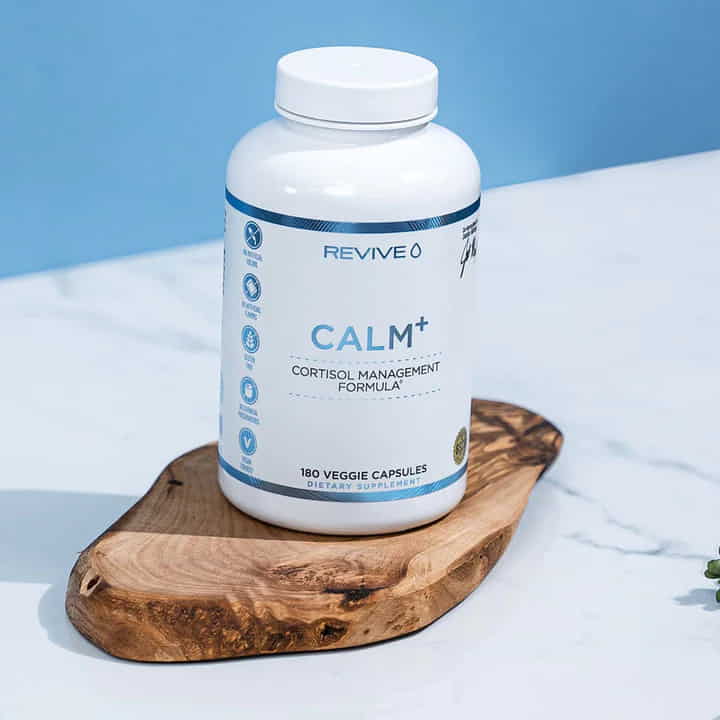How much of a priority is your heart health?
While the heart is a vital organ, not everyone thinks about their cardiovascular health on a constant basis. Whether you are truly concerned about your heart varies from person to person based on your current health status, lifestyle decisions, and more. The truth is, unless you have suffered from heart problems in the past, overall heart health may not be at the top of your priorities list. However, taking care of your everyday cardiovascular wellness is something everyone should be doing, regardless of age, gender, or medical history. That is why people all over the world are turning to CoQ10 supplements to optimize their cardiovascular health so that they can live a longer, healthier, and more worry-free life.
But what exactly is CoQ10?
What Is CoQ10?
CoQ10 is a molecule we naturally produce in our bodies, but it can also be consumed through our diet and supplementation. CoQ10 is stored in and plays a crucial role within our mitochondria (cellular powerhouse) in producing energy (ATP). The compound also helps the mitochondria in its function to protect cells from oxidative harm and disease-causing viruses or bacteria.
CoQ10 is present in every cell of your body. However, the highest concentrations are found in organs with the greatest energy demands, such as the heart, kidneys, lungs, and liver. In addition to helping with the production of adenosine triphosphate, research has shown that CoQ10 plays a key role in protecting these organs, particularly the heart.
As we age, our body’s natural ability to produce CoQ10 tends to decrease. As a result, older adults tend to have much lower levels of this compound in their systems. However, CoQ10 deficiency can also be the result of other factors, such as:
- Nutritional deficiencies
- Oxidative stress from aging
- Genetic defects related to CoQ10 synthesis
- Diseases affecting tissue and organ health
- Mitochondrial diseases
- Effects of some statin treatments
Due to the importance of CoQ10 for our systems, keeping healthy levels of this compound is essential for a chance at a healthier and more active life. For this reason, taking CoQ10 supplements is becoming more and more popular every day.
How Does CoQ10 Work?
CoQ10 supplements help protect our organs thanks to its antioxidative properties, which protect cells from oxidative damage caused by free radicals. If left untreated, free radicals can lead to harmful oxidative damage, which may interfere with healthy cell functions. This is known to cause a wide range of conditions relating to the heart and other organs in our system.
Because oxidative damage is destructive to cells and CoQ10 is directly responsible for protecting cells from free radicals, it is not surprising that some diseases have been found to be linked to low levels of CoQ10.

What Does CoQ10 Do for the Heart?
Supplementation of CoQ10 seems to be most beneficial for cardiovascular health, especially among older demographics. It is particularly beneficial for those who have previously suffered from a heart attack, are currently taking prescription statins, or have cardiovascular pathologies like hypertension. Overall, CoQ10 benefits for heart health include:
- CoQ10 has been shown in research to improve blood vessels' function, leading to a reduction in blood pressure and improvement in overall blood circulation.
- CoQ10 is considered to be “the first new drug to improve heart failure mortality in over a decade” after the results of a randomized study. The results showed that taking CoQ10 reduced deaths in patients with severe heart failure by half, compared to a control group.
- In another randomized clinical trial, patients who were taking CoQ10 after a heart attack showed a much lower rate of subsequent cardiac events over the next year, compared to a control group.
- Recently, a meta-analysis in the American Heart Association's scientific journal reported that CoQ10 significantly improves a lot of the negative side effects (i.e., muscle pain, weakness, cramping, and fatigue) induced by taking statins.
More CoQ10 Health Benefits
While CoQ10 is best known for its powerful support of cardiovascular health, research highlights several other important benefits that contribute to overall wellness:
-
Helps manage diabetes: CoQ10 may improve blood sugar regulation and insulin sensitivity by reducing oxidative stress in pancreatic cells, which can support better glucose metabolism and help manage type 2 diabetes.
-
Reduces the frequency and severity of headaches: Some studies have found that CoQ10 supplementation can lower the occurrence of migraines by improving mitochondrial function in brain cells and decreasing inflammation and oxidative damage.
-
Enhances exercise performance and recovery: By boosting energy production in muscle cells, CoQ10 supports endurance, delays fatigue, and speeds up recovery after physical activity, making it popular among athletes and active individuals.
-
Promotes healthier, more youthful skin: CoQ10 protects skin cells from oxidative damage caused by UV rays and environmental stressors, supports collagen production, and enhances skin repair processes, contributing to improved elasticity and reduced wrinkles.
-
Supports fertility in men and women: As covered in detail, CoQ10 protects reproductive cells from oxidative stress, improves sperm quality and egg viability, and may help reverse age-related declines in fertility, making it a valuable supplement for reproductive health.
CoQ10 Benefits for Men
As men age, the natural effects of oxidative stress can take a toll on sperm health, which plays a vital role in male fertility. Oxidative damage occurs when harmful free radicals overwhelm the body’s natural defenses, and sperm cells are particularly vulnerable due to their high content of fragile fats and limited antioxidant protection.
Supplementing with CoQ10, a powerful antioxidant and key energy producer in cells, can help counteract this damage and support male reproductive health in several ways:
-
Boosts sperm count: CoQ10 supports the production of healthy sperm, leading to an increased sperm concentration, which enhances the chances of successful fertilization.
-
Improves sperm motility: By fueling mitochondrial energy production, CoQ10 helps sperm swim faster and more effectively, increasing their ability to reach the egg.
-
Protects sperm DNA: Oxidative stress can cause DNA damage in sperm, which may reduce fertility or affect embryo development. CoQ10’s antioxidant effects help safeguard genetic material, promoting healthier sperm and better reproductive outcomes.
CoQ10 Benefits for Women
Female fertility naturally declines with age, partly due to oxidative stress impacting the quantity and quality of eggs (oocytes) in the ovaries. Mitochondria, the energy-producing powerhouses within egg cells, become less efficient over time, which can affect egg viability and reduce the chances of conception.
Research suggests that CoQ10 supplementation may help combat these age-related declines by:
-
Supporting mitochondrial function: CoQ10 enhances energy production within egg cells, which is crucial for maintaining healthy and viable eggs.
-
Reducing oxidative damage: Its antioxidant properties protect eggs from harmful free radicals, which otherwise accelerate egg aging and reduce fertility.
-
Potentially increasing egg quality and quantity: Studies indicate that CoQ10 can help slow down or even partially reverse the natural decline in ovarian reserve, improving both the number and health of eggs available for fertilization.
This makes CoQ10 an appealing supplement for women who want to support their reproductive health, especially those over 35 or experiencing fertility issues. By improving cellular energy and reducing oxidative stress, CoQ10 contributes to better egg health and overall fertility potential.
Combine CoQ10 with Heart-Healthy Lifestyle Habits
For the best results, CoQ10 supplementation should be part of a broader heart-healthy routine. Consider incorporating these lifestyle habits to support your cardiovascular system naturally:
-
Stay active: Engage in regular cardiovascular exercise such as walking, swimming, or cycling to strengthen your heart and improve circulation. Physical activity helps lower blood pressure, regulate cholesterol levels, and enhance the efficiency of your heart and lungs. Aim for at least 150 minutes of moderate aerobic activity each week for the best cardiovascular benefits.
-
Eat a balanced diet: Focus on foods rich in antioxidants like fruits, vegetables, nuts, and whole grains that help reduce oxidative stress. A Mediterranean-style diet, high in healthy fats like olive oil and low in processed foods, has been especially linked to improved heart health.
-
Manage stress: Chronic stress can increase blood pressure and inflammation, which are harmful to the heart. Practice relaxation techniques such as meditation, deep breathing, or yoga to calm the nervous system, reduce cortisol levels, and support long-term heart health.
-
Avoid harmful habits: Limit alcohol intake and avoid smoking to protect your heart and blood vessels. Smoking in particular is one of the top risk factors for heart disease, while heavy alcohol use can raise blood pressure and weaken the heart muscle over time.
Combining these daily habits with consistent CoQ10 supplementation creates a powerful foundation for maintaining a strong, resilient heart. Small changes add up, and together they can help reduce risk factors, support energy levels, and promote a longer, healthier life.
Getting Started With CoQ10
If you’re looking to improve your overall heart health and reduce your blood pressure, check out Revive HEART formula. Providing you with a full clinically effective dose of CoQ10 (100mg) per serving, as well as other extremely potent ingredients to protect & improve heart function (i.e., arjuna, garlic). We hope you take a proactive approach to optimize your health rather than a reactive one!
The information being presented in this blog is intended to be used as educational or resource information only. It is not intended to be a substitute for medical advice from your healthcare provider. This content should not be used for the diagnosis or treatment of any medical condition. If you have any questions or concerns about your health, please contact your healthcare provider. You should call 911 for all medical emergencies. Revive MD is not liable for any advice or information provided on this blog, which advice or information is provided on an “as-is” basis, and assumes no liability for diagnosis, treatment, decisions, or actions made in reliance upon any advice or information contained on this blog. No warranties, express or implied, are made on the information that is provided.




